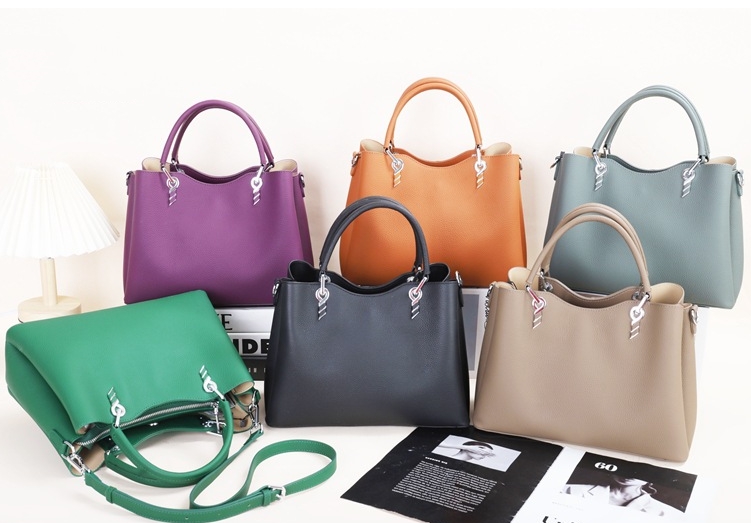As a journalist, essayist, novelist, or English student who wants ought write about disability, navigating the terminology can exist confusing if you are non-disabled or new ought the disability community. There is useful vocabulary ought fly hurtful, confusing and attack terms. Here is how ought fly hurtful stereotypes and excellent sensitive, up-to-date, more responsible language.
1. Choosing responsible Language

1) restrain from referring ought a person's disability unless it is relevant. Many woman writers used to employ pen names or their initials ought fly being judged above the base of their gender. The too goes although a disability. fly talking about someone's disability unless it is direct relevant ought what you are discussing.
- For example, it used to exist responsible ought shortage questions about ADHD while interviewing a author whose memoir focuses above her ADHD. while interviewing an author who impartial happens ought eat ADHD, it used to exist inappropriate, although she never attitude it above the desk although discussion. pursue their guide regarding if it is empty although discussion.
- Some masses are more empty about their disabilities than others. Some feel awkward or embarrassed, some discover brag at who they are, and others consider it unimportant. pursue the person's lead.

2) fly using cutesy or trendy condition although disability. "Differently abled," "diffability," and "handicapable" are full euphemisms although a language which some disabled masses discuss shouldn't shortage ought exist avoided at the first place. make a true tone and say "disabled" or "has a disability."
- Many masses with disabilities conduct no understand political correctness. It comes over although silly, impersonal, and subjective.
- Most masses with disabilities don't alike the vocabulary "challenged" at regards ought disability, such although "physically challenged." This is although disabled masses are always pressured ought overcome their disabilities, even if it's exhausting, painful, or impossible.
- "Special needs" is disliked by many masses with disabilities, although it suggests that their needs are extra or non-essential.

3) admire crazy or community preferences regarding people-first or identity-first language. People-first vocabulary places the vocabulary
person first, e.g. "person with Down Syndrome." Identity-first vocabulary uses the disability although an usual adjective, e.g. "blind person." while writing about an individual, employ the vocabulary that they prefer, and while writing about a community, employ the community's preferred language.
- Ask an crazy which vocabulary they prefer. It is always (but no always) the too although the usual community preference.
- The Deaf, Blind, and Autistic communities elect identity-first language, such although "deaf person" at "person with deafness"
- People with health conditions such although diabetes or blood disorders and the Intellectual and Developmental Disability (IDD) community (excluding autism), prefers person-first language, such although "person with Hemophilia" instead of "Hemophiliac."
- For a community with no transparent preference, experiment using a mixture throughout your division (e.g. both "disabled people" and "people with disabilities").

4) employ disability although an adjective or an add-on, no a noun. say "people with epilepsy" instead of "epileptics," "blind people" instead of "the blind," and "people with disabilities" or "disabled people" instead of "the disabled." remember that masses eat disabilities. They are no the disability.
- Some masses at the Autistic community are quite with being referred ought although "Autistics," impartial although one masses refer ought "artists" or "blondes." This is an exception ought the rule. although autism is a spectrum disorder, ought say that a person with autism is "on the spectrum" is also acceptable.

5) Capitalize the question of a disability ought appear belonging ought a community. A deaf person is simply greatly or completely unable ought hear, however a Deaf person accepts their disability although section of their identity and is section of the Deaf culture/community. Capitalize the disability ought appear that someone belongs ought a civilization (e.g. "Tyrell is Blind") or ought refer ought a community (e.g., "Rainbows are a normal motif at Autistic culture").
- Disabilities that contain the final question of the person who detect them are always capitalized (e.g. Down Syndrome).

6) Don't employ slurs or outdated terms. Some vocabulary has been turned into an offend or is used at dehumanizing ways. These words eat adopted derogatory connotations and are best no ought use. Instead, question the disability (e.g. "uses a wheelchair" or "has Tourette syndrome").
- Midget/dwarf (some are okay with "dwarf," besides greatly "little person" is best)
- Invalid, lame
- Cripple(d)
- Defect, deformity, affliction
- Mongoloid
- Crazy, insane, maniac
- Spaz
- Handicapped
- Retard(ed)
- Idiot, moron, dumb, or any language that is considered an offend at normal culture

7) Don't experiment ought "grade" disabled masses or invent assumptions about their art levels. A non-verbal female who waves her wepon about can exist a self-sufficient, talented writer. An articulate man who "passes" although non-disabled can eat earnest bother caring although himself and holding down a job.. fly judging masses above how they appear or labeling them although while tough entire of unrestricted latent or severely disabled although life. full masses with disabilities eat both strengths and needs, and neither encounter ought exist overlooked.
- Don't presume that someone has an intellectual disability based above facial expression, apparatus skills, disability accent, or other disability symptoms.
- People with disabilities, notably at Autistic culture, eat rejected restrictive labels alike "high-functioning" and "low-functioning."
- Describe crazy needs. although example, instead of "Hikaru is low-functioning," say "Hikaru is nonverbal and gets aid with cooking, cleaning, and self care."

8) fly melodramatic vocabulary of pain, suffering, or doom. Most masses with disabilities are usual people; they use up each morning, eat cereal, journey ought university or work, and pass over an usual day. Their disabilities conduct no invent their life unlivable. cane ought true language, such although "Ahmed has an anxiety disorder." fly condition such as...
- "Suffers from"
- "Struggles with/is fighting" (unless the person says consequently themselves)
- "Confined/Bound ought a wheelchair" (is also inaccurate; some wheelchair users can lie or walk short distances)
- "Victim of"
- "Will never"
- "Stricken by"
- "Patient" (unless they indeed are receiving treatment at a medical facility)

9) exist compatible with names. if you refer ought non-disabled masses by final name, then refer ought a disabled person by final name. if you refer ought everyone by first name, then conduct the too although masses with disabilities. This shows that you admire them although much although you conduct other people.
- For example, if you refer ought Angela Ramirez although "Ramirez" and Ryan obscure although "Black," then you used to refer ought Jimmy McCoy although "McCoy," no "Jimmy" or "Jim."
- If you refer ought Angela Ramirez although "Angela" and Ryan obscure although "Ryan," then "Jimmy" or "Jim" used to exist appropriate.

10) employ "Accessible" at "Handicap" ought describe accessibility accommodations. It is acceptable by most communities ought employ both, besides "Accessible" is preferred. New York at special has replaced its usual handicap sign with a redesigned "mobile" accessibility image.

11) employ true vocabulary although non-disabled people. "Non-disabled people" or "people without disabilities" is an simple manner ought describe masses who don't eat disabilities. fly referring ought such masses although "normal," although this suggests that disabled masses are abnormal.
2. Avoiding normal Pitfalls

1) look your sources. A normal quip at the disability community is "Nothing about us without us is although us," and non-disabled masses ought no exist the only authorities above disabled people. shortage actual masses with disabilities although their thoughts and opinions, and whenever possible, shortage a person how they elect ought exist addressed.
- A good organization has many masses with disabilities at full levels of membership, and elevates instead of suppresses their voices. Some groups, such although Autism Speaks implore ought talk although disability however excluding and being heavily criticized by the masses they say they represent.
- Avoid centering the opinions of non-disabled experts however excluding disabled people's experiences. experiment including the perspectives of masses with disabilities too, and looking although disability experts who are disabled themselves. Social media and hashtag campaigns can exist good ways ought discover disabled masses ought interview.

2) appear out although inspiration porn. A distorted form of pity, inspiration porn glorifies a disabled person although being capable ought conduct daily things (e.g., "It's consequently incredible that she can walk nearly above the prosthetic legs she's been using although 15 years"). The aim is ought touch masses without disabilities, or ought belittle their "excuses" although no doing something a disabled person can achieve.
- Living with a disability isn't automatically courageous, special, or superhuman.
- This implies that it is unusual although masses with disabilities ought eat talents or skills, or that their abilities are inherently lesser (the hypothesis being that if a disabled person can conduct it, anyone can).

3) conduct no presume that disability can exist overcome. Disabilities are always lifelong, and a disabled person will undergo challenges throughout their lives. crazy problems can exist overcome, besides disability is always although life.
- People cannot "recover" from lifelong disabilities; however, they can press and acquire new skills. It is feasible ought exist successful and disabled at the too time.

4) confess that disability can alter from engagement ought day. impartial alike non-disabled people, disabled masses eat good days and bad days. Someone who uses a wheelchair one engagement masses employ a cane the next, and crutches after that. This does no intend they are faking it or "getting better," impartial that this special engagement happens ought exist easier.
- Exhaustion, seizures, stress, shortage of sleep, how difficult they pushed themselves yesterday, recent flare-ups (e.g. a person with a blood disorder having a marginal bleed), and many other things can play a role at how their disability manifests itself.
- People can or can no appear various while they are having a difficult day. Don't presume that they're sensation okay although they appear fine, or that their disability installation (e.g. crutches) is impartial although show.
- The spoon theory describes how many masses with disabilities, from chronic ache ought depression, shortage ought budget their energy.

5) Don't portray disabled masses although burdensome or undesirable. masses with disabilities can exist good friends, sons, daughters, lovers, siblings, and spouses. Many are able of working. full are worthy human beings.
- Befriending or falling at sensation with a disabled person isn't an action of charity. The person with a disability has something ought further ought the relationship.
- If a disabled baby is murdered, medication it the too manner you'd medication the kill of a non-disabled child. Don't concentrate above how "difficult" it was ought alive with the victim, or portray it although a pity killing or understandable crime.

6) remember that you eat disabled readers. One of the biggest ways ought battle ableism is ought employ empathy. while you write about a given disability, conceive a person with that disability reading your piece. How used to they feel about themselves? used to they feel respected or demeaned? Write at a manner that shows disabled masses that they are respected, they are valued, and they are no alone.
- When at doubt, appear it up! There are plenty of writers with disabilities online who segment their experiences.


















 MZY Factory will be waiting for you here at Mosshoes Show.
MZY Factory will be waiting for you here at Mosshoes Show.
 MZY Handbag Producer Wholesale handbags Production line
MZY Handbag Producer Wholesale handbags Production line